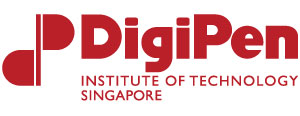
About Course
This specialised micro-credential empowers learners with the skills to analyse and harness data by developing machine learning models and leveraging recommendation systems, used frequently in apps such as Amazon, Instagram and Netflix.
As a learner, you will first be introduced to the concept of supervised learning. This includes the general theory of learning from data, as well as several popular machine learning methods. Through Python programming, you will create and deploy your own machine learning models and understand how the machine learning model works.
Your foundation on machine learning will be further expanded to touch on advanced topics related to unsupervised learning, such as clustering and dimensionality reduction techniques. These allow you to better grasp the nature of data by grouping and finding its dimensions of correlation. You will also be given the opportunity to apply your newfound knowledge through assignments implemented in Python and its associated libraries, such as pandas, NumPy and SciPy.
Finally, you will gain a comprehensive understanding of recommendation systems – a critical component of e-commerce and advertising platforms today. You will learn fundamental concepts, algorithms, and evaluation techniques used in building recommendation engines. You will then explore the theoretical underpinnings of various recommendation methods and gain hands-on experience in implementing and evaluating these systems.
Integrating online and in-person delivery, the micro-credential offers various learning activities such as laboratory sessions, online discussion forms and consultations.
This micro-credential is part of the CSM Pathway in Applied Computing.
Who Should Attend
This micro-credential prepares learners for the following job roles:
Assumed Prior Knowledge
Learning Outcomes
This micro-credential is predominantly delivered through a competency-based education (CBE) approach where learners acquire and demonstrate mastery of knowledge and skills that are directly relevant to job functions. This prepares them to be industry-ready where they can apply their newly acquired competencies to their work.
List of Competency Units
| Code | Competency Unit Title | Credits |
|---|---|---|
| ICT2506C | Supervised Learning Techniques | 6 |
| ICT2507C | Unsupervised Learning Techniques | 6 |
| ICT2508C | Recommendation Systems | 6 |
The above are competency units that constitute this micro-credential. Upon completion of the micro-credential, you will be able to:
- Design a machine learning data pipeline
- Clean and prepare data for the pipeline
- Utilise unsupervised learning techniques
- Understand and develop recommendation systems
- Translate technical findings to positive commercial outcomes

Coaching for Success
During the course, you will have access to a team of qualified success coaches who can work with you on learning strategies or to develop a personalised learning plan. Through the success coaches, you can gain access to a wide range of resources and support services, and be empowered with the necessary tools to navigate your learning journey successfully.
Teaching Team

Tong Rong
Assistant Professor, Infocomm Technology, Singapore Institute of Technology

Soh Cheng Lock, Donny
Associate Professor / Prog Leader, Infocomm Technology, Singapore Institute of Technology

Liu Jun Hua
Associate Lecturer, Infocomm Technology, Singapore Institute of Technology

Priyanka Bhoyar
Lecturer, Computer Science, DigiPen Institute of Technology Singapore
Course Details
Schedule
| Week | Learning Activity | Delivery and Time |
|---|---|---|
| 1 – 11 | Self-directed learning | Asynchronous Online |
| 2 – 6, 8 – 9 and 11 | Laboratory session with consultation (optional – to book in advance) | In-person Time TBC |
| 4, 8 and 12 | Quizzes | Synchronous Online |
Certificate and Assessment
A Specialist Certificate in Machine Learning will be issued to learners who:
- Attend at least 75% of the course and
- Undertake and pass all credit bearing assessments
Assessment Plan
The learner will undertake a combination of quizzes, a project, and exam during the course.
Fee Structure
The full fee for this course is S$9,868.86.
| Funding Category | Eligible Funding | Course Fees Payable After Funding |
|---|---|---|
| Singapore Citizen (Below 40) | 70% | S$2,960.66 |
| Singapore Citizen (Above 40) Funded under SkillsFuture Mid-Career Enhanced Subsidy (MCES) | 90% | S$1,149.86 |
| Singapore PR / LTVP+ Holder | 70% | S$2,960.66 |
| Non-Singapore Citizen | Not Eligible | S$9,868.86 |
Note:
- A one-time, non-refundable matriculation fee of $54.50 will be collected before course commencement.
- All fees above include GST. GST applies to individuals and Singapore-registered companies.
- Should you decide to convert to the degree pathway, you will be subject to SIT’s tuition fees and may qualify for the Ministry of Education (MOE) tuition grant, based on eligibility criteria set by MOE. Please note that the SkillsFuture subsidy will no longer be applicable once you convert to the degree pathway.
Course Runs
Learning Pathway

Earn Stackable Specialist Certificates
New Engineering Micro-credentials Launching Soon!
Exciting news! We are introducing new micro-credentials in Electrical and Electronic Engineering & Infrastructure and Systems Engineering. Be among the first to know by registering your interest today! Register now →
